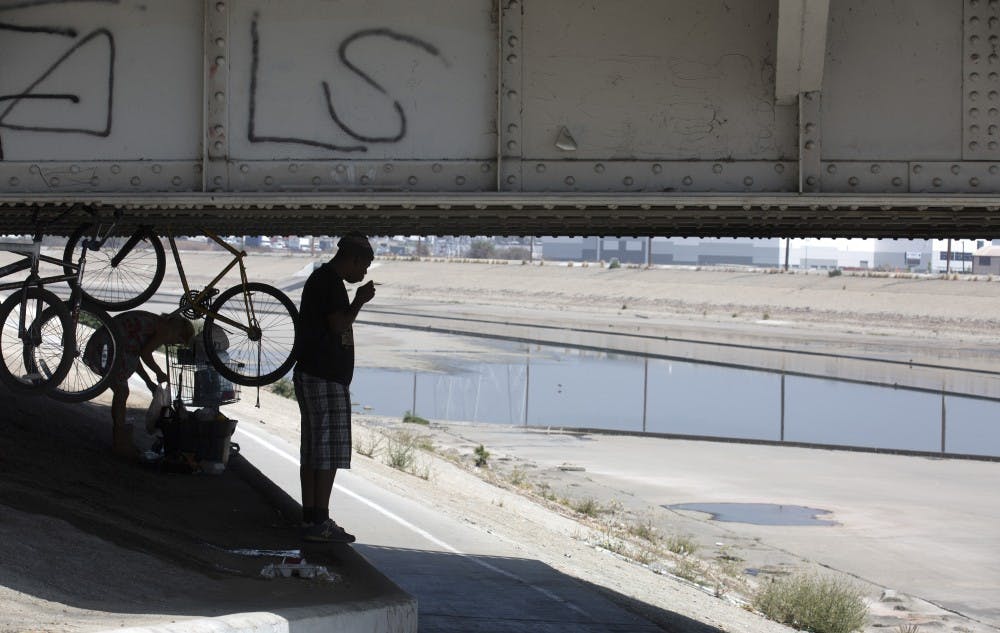After the City of Phoenix finished its most recent quarterly homeless report, a city council subcommittee approved a Veteran Navigation Services plan which aims to track and house homeless veterans in the metro Phoenix area.
The city's Sustainability, Housing, Efficiency, and Neighborhoods Subcommittee collected data from January through March of this year. According to a report read by officials, 346 veterans were housed in the Maricopa County homeless services system.
“We have about 70 percent of our veterans in some kind of service, whether it’s transitional housing or an emergency shelter," Riann Balch, deputy Human Services and Family Advocacy Center director, said at a September city council meeting. "But about 30 percent of our veterans are still living homeless on the streets."
That percentage accounts for hundreds of homeless veterans, Balch said.
“In total, we have about 807 active homeless veterans throughout the region," she said. "Our numbers continue to rise."
The City of Mesa, no stranger to the veteran navigation process, created a task force in 2015 made up of Mayor John Giles and Councilmen Chris Glover and Kevin Thompson called “Housing Our Heroes,” according to the city's website.
The task force aimed to ensure health care would be available to veterans, in addition to removing any obstacles preventing permanent housing from being
Balch said the department hopes to emulate the work being done at City of Mesa with the “Project H3 VETS” program.
Project H3, which stands for home, health and hope, uses “an active engagement system that works with community members to identify and refer chronically homeless veterans to the program,” according to the Arizona Coalition to End Homelessness’ website.
Balch said the project was successful because it had three key components — a “by name” list with the name and status of every veteran, navigation and outreach services and a “housing first” approach.
“In 2014, Phoenix was recognized as a leader in ending chronic homelessness,” Balch said. “We know what works — the 'H3' model was very successful and now we seek to expand it and scale up so we can apply it to all populations,” Balch said.
The City of Mesa supplemented $25,000 in addition to the City of Phoenix’s $100,000 budget for navigation and coordination services for homeless veterans.
“What that allows us to do is, we will be able to get navigation services, which we don’t currently have, and Mesa currently does have,” Balch said. “Their money will also allow us to start a coordination base, which is the link between knowing who the veterans are and finding them and getting them to housing."
Phoenix Vice Mayor Kate Gallego said the city is making efforts to reduce homelessness across the state, not just within the city's borders.
“We’re continuing our leadership in being a city that serves our veteran population,” Gallego said at the September meeting. “The more the state can step up, the better.”
Homelessness acutely affects veterans, and the veteran community at ASU has an opportunity to help those in need.
Michelle Loposky, military advocate for the Pat Tillman Center at ASU and member of the Tempe Veteran’s Commission said she hopes as the veteran students she works with at ASU get their degrees, they will pay it forward.
“It’s an epidemic," Loposky said. "It’s an issue that needs to be addressed from those who have the capability, the funds, the resources, the networking who can do those kinds of things, because veterans just can’t do it by themselves. You need the government, you need leadership, you need people who have those powers to help.”
Reach the reporter at sphaas@asu.edu or follow @_SavannahHaas on Twitter.
Like The State Press on Facebook and follow @statepress on Twitter.




